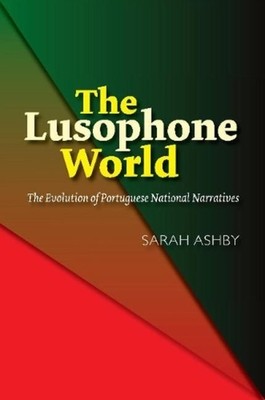
- We will send in 10–14 business days.
- Author: Sarah Ashby
- Publisher: Sussex Academic Press
- ISBN-10: 1845198743
- ISBN-13: 9781845198749
- Format: 15.2 x 22.9 x 0.9 cm, minkšti viršeliai
- Language: English
- SAVE -10% with code: EXTRA
Reviews
Description
Portugal's European Union honeymoon has officially ended. It was the victim of a Europe-wide political and financial crisis, and an unstable EU identity increasingly splintered along regional and economic fractures. What does this mean for the former ''good student'' of European democracy? The answer may lie in renewed Portuguese efforts to deepen and strengthen ties with Lusophone countries across the globe which, since 1996, have been organized into a supranational organization called the Community of Portuguese-Speaking Countries (CPLP). While Portugal's marginality in relation to Europe might be emphasized in the corridors of Brussels, within the realm of the CPLP the former world power can once again see itself as existing at the center-geographically as well as from a historic-cultural perspective-of an extensive international milieu. The Lusophone World: The Evolution of Portuguese National Narratives explores the dialectic between Portugal's sense of identity and belonging in the EU and the CPLP. It provides an analysis of the manner in which Portugal's institutional allegiances to both of these organizations have impacted the political, economic, and social fabric of the nation. The fact that Portugal is turning to its former colonies as alternate partners in trade, commerce, emigration, and development initiatives may not be evidence of straightforward estrangement from the European continent. More likely, Portugal appears to be riding a fresh wave of what it means to be modern in the European milieu. This new concept of modernity, related to rhetoric of hybridity and a self-professed position as interlocutor, could be evidence of a deeper understanding of the new tools needed to survive and prosper in a rapidly-changing European Union. (Series: Portuguese-Speaking World: Its History, Politics & Culture) [Subject: International Relations, Trade, Commerce & Immigration, European Union Studies, Sociology, Portuguese Studies]
EXTRA 10 % discount with code: EXTRA
The promotion ends in 23d.04:06:45
The discount code is valid when purchasing from 10 €. Discounts do not stack.
- Author: Sarah Ashby
- Publisher: Sussex Academic Press
- ISBN-10: 1845198743
- ISBN-13: 9781845198749
- Format: 15.2 x 22.9 x 0.9 cm, minkšti viršeliai
- Language: English English
Portugal's European Union honeymoon has officially ended. It was the victim of a Europe-wide political and financial crisis, and an unstable EU identity increasingly splintered along regional and economic fractures. What does this mean for the former ''good student'' of European democracy? The answer may lie in renewed Portuguese efforts to deepen and strengthen ties with Lusophone countries across the globe which, since 1996, have been organized into a supranational organization called the Community of Portuguese-Speaking Countries (CPLP). While Portugal's marginality in relation to Europe might be emphasized in the corridors of Brussels, within the realm of the CPLP the former world power can once again see itself as existing at the center-geographically as well as from a historic-cultural perspective-of an extensive international milieu. The Lusophone World: The Evolution of Portuguese National Narratives explores the dialectic between Portugal's sense of identity and belonging in the EU and the CPLP. It provides an analysis of the manner in which Portugal's institutional allegiances to both of these organizations have impacted the political, economic, and social fabric of the nation. The fact that Portugal is turning to its former colonies as alternate partners in trade, commerce, emigration, and development initiatives may not be evidence of straightforward estrangement from the European continent. More likely, Portugal appears to be riding a fresh wave of what it means to be modern in the European milieu. This new concept of modernity, related to rhetoric of hybridity and a self-professed position as interlocutor, could be evidence of a deeper understanding of the new tools needed to survive and prosper in a rapidly-changing European Union. (Series: Portuguese-Speaking World: Its History, Politics & Culture) [Subject: International Relations, Trade, Commerce & Immigration, European Union Studies, Sociology, Portuguese Studies]


Reviews